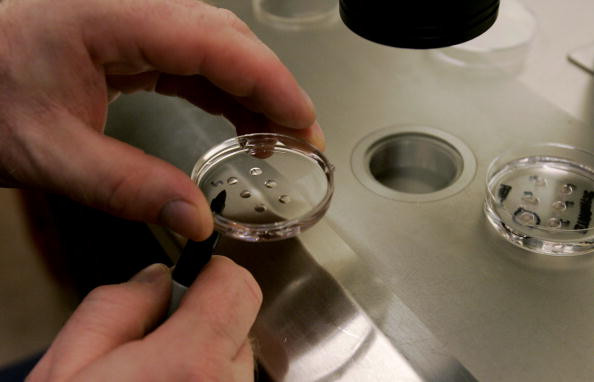Alarm over genetic editing of human embryos that opens door to designer babies and superhumans

Amidst rumours that precise gene-editing techniques have been used to create designer human embryos, researchers have called for a moratorium on the use of the technology.
They fear that such attempts will create an ethical backlash from society against all use of the technology which has been used in many therapies to correct genetic defects in people.
Geneticist Xingxu Huang of ShanghaiTech University in China has sought permission from his institution's ethics committee to genetically modify discarded human embryos.
In February 2014, he had reported using a gene-editing technique to modify embryos that developed into live monkeys.
Edward Lanphier, chairman of the Alliance for Regenerative Medicine in Washington DC, and four co-authors of the article in Nature call on scientists to agree not to modify human embryos even for research.
"Such research could be exploited for non-therapeutic modifications. We are concerned that a public outcry about such an ethical breach could hinder a promising area of therapeutic development," write Lanphier and his colleagues, who include Fyodor Urnov, a pioneer in gene-editing techniques and scientist at Sangamo BioSciences in Richmond, California.
"We need a halt on anything that approaches germline editing in human embryos."
Others disagree, saying the potential to eliminate inherited diseases means that scientists should pursue research.
Known as germline modification, making genetic changes to embryos, eggs or sperm are of particular concern because a person created using such cells would have had their genetic make-up changed forever.
The fear is that germ-line engineering takes mankind on the dangerous path to superhumans and designer babies, for those who can afford it.
As Lanphier puts it, "The human species is not a laboratory rat, it is not an improved corn plant—it's a unique species on this planet. The fundamental thing for me is this is a boundary that the human species should not cross."
Manipulation of unfertilised eggs
Gene-editing techniques are also being used by Juan Carlos Izpisua Belmonte, a developmental biologist at the Salk Institute for Biological Studies in La Jolla, California, to eliminate disease-causing mutations from mitochondria, the cell's energy-processing powerhouse.
Belmonte's work is however on unfertilised eggs. Human eggs with such modified mitochondria could be used in in vitro fertilization (IVF) procedures to prevent a woman's offspring from inheriting mitochondrial disease.
The three-parent baby method has been approved in the UK recently.
Precise gene-editing techniques in recent years use enzymes called nucleases to snip DNA at specific points and then delete or rewrite the genetic information at those locations. Methods like the CRISPR are simple enough to be done in a fertility clinic.
While one study has overruled mistakes in the process, nucleases could cause mutations at locations other than those targeted and lead to unexpected consequences.
Another group of scientists had raised concerns last year on the same gene editing tool, calling notice to unintended consequences of gene manipulation.
Any gene variant given an artificial boost could eliminate other versions of those genes whose potential evolutionary importance scientists have no idea of.
Geneticist Dana Carroll of the University of Utah in Salt Lake City says, "Germline genome alterations are permanent and heritable, so very, very careful consideration needs to be taken in advance of such applications."
Germline gene editing is already banned by law in around 29 countries.
The more largely adopted gene therapy does not affect germ cells, and the changes in the DNA wouldn't get passed to future generations, say the scientists in the Nature paper.
But others say they are mistaken as future generations could be affected by epigenetic effects that change how genes get expressed.
Banning germline editing would then also call for ban on current gene therapies, they say.
© Copyright IBTimes 2025. All rights reserved.





















